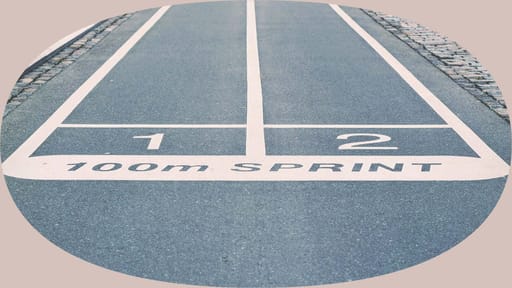Productivity and Remote Work: Are You Being Efficient or Doing Too Much?

by Hana LaRock

Working from home has terrific benefits, whether it’s getting to relax on your couch when you feel tired, going for a run in the middle of the day, making your own lunch, or spending time with your dog. You may find that working from home also allows you to be more productive. In fact, a study by Airtasker showed that although employees may technically work more hours at home than at the office, it’s because "they spent more time getting things done" during those hours due to a combination of factors.
This points to one of the downsides of remote work: It can be hard to separate work time from family and leisure time, but typically clear distinctions exist.
Productivity vs. Overworking
Merriam-Webster defines “productivity” as the amount of work produced by a team or individual, and “efficiency” is the resources, time, and budget used to produce that work. Sometimes very hardworking people think that being productive is synonymous with going to extreme lengths to get work done. They may work excessively long hours or never take a vacation.
Working longer and harder does not necessarily equate to more productivity. According to a Stanford University study, productivity actually declines each hour after a worker exceeds 49 hours per week. Working more hours can make you less productive, because you’re not working when you’re most energetic or capable. Remote work does give you the opportunity to work when you’re feeling most productive, but at other times it can make you feel sluggish, burned out, and quite the opposite of productive.
But a balance can be found. A few routines can help you identify your productivity sweet spot without being overworked in your remote role.
Stick to a Routine
Though you may be tempted to watch Netflix half the night and then sleep in until 11 a.m., it’s important to adhere to a regimented work routine as much as possible. Sure, you may be able to wake up later some days, but sticking to a schedule that suits your lifestyle can help you be more productive as you work from home. The following tips can help you create the optimal work-from-home routine for you.
Take Meaningful Breaks
Breaks are essential to a productive working day. At home, you may feel as if you don’t need as many breaks because you’re more relaxed without the commute. Experts agree, however, that breaks lead to increased efficiency. We all need to recharge our batteries at some point, and when you work from home, your breaks can be more self-focused than at the office. That said, a break shouldn’t make it harder for you to get back on task when it’s time to return to work.

To help with your focus and energy levels, find break activities that refresh you, like yoga, stretching, reading, writing, or watching an educational video. Or try the Pomodoro Technique to help you craft more productive breaks. Not only do you deserve them, but they’re good for your overall success!
Clock In and Clock Out Completely
Theoretically, in a remote working world, it’s useful for the proverbial time clock to be a little flexible. For some people, remote work presents a chance to work when their juices are flowing, instead of pretending they’re on task only when their boss is looking over their shoulder at the office.
Either way, it’s important to start work at the same time every day, as well as to put a hard stop on the end of your workday so you can turn your attention to the business of living at home. Working from home can lead us to linger on the computer “just a little longer.” Of course, not every remote worker is on the computer for the majority of their day, so implementing other tips to end your day on time while working remotely can work wonders.
Maintain Useful Communication with Others
A successful workforce no longer requires in-person communication across cubicles or conference tables. When you’re working with team members across different geographical spaces, “word of mouth” takes on a whole new meaning.
Zoom, Microsoft Teams, and other videoconferencing platforms allow employees, contractors, and their superiors to connect and collaborate even when they’re physically disconnected. Email is another efficient tool for staying in touch and sharing company news and project updates. Even so, too many conference calls or emails to answer can put a damper on productivity. Don’t be afraid to tell your boss if the number of meetings or level of communication—whatever that may be—is preventing you from doing your job. On the flip side, when you need support or connection during the day, hop on a call or send a text to a coworker—they’ll probably appreciate the contact as much as you do.
Stand Your Ground
Sometimes managerial demands on a remote team can be greater than they were in the office environment. If you find you’re being asked to do more than you were hired to do or to extend beyond your capacity, it’s okay to speak up so you can focus on your specific role. Trying to take on too many tasks and work in areas where you’re not proficient can lead to burnout and a lack of efficiency.
Manage Distractions
Office workers report being more distracted by their boss than remote workers are, but at home, there are so many other types of distractions. For parents, one of the biggest is their kids—who need help with schoolwork, with getting to and from soccer practice, even with going potty. Holding the title of chief house cleaner prevents plenty of home-based workers from focusing on work—especially those who can’t concentrate amid a sink full of dirty dishes or a spiderweb dangling from a corner.
Most of us know what our biggest distractions are, but we’re not as aware of how to manage them. One expert tip is to create a dedicated space in your home where you can work comfortably. Additionally, CNBC recommends establishing a morning self-care routine, avoiding housework and chores during work hours, and setting a schedule for your children. You can also install distraction-blocking software to help you avoid temptations to check social media or shop daily deals when you should be writing a report.
Be Kind to Yourself
Last but not least, the ultimate key to being productive, efficient, and not overworked when you work from home is to be kind to yourself, starting with understanding that working more does not translate directly to increased productivity. And you don’t need to be at maximum productivity every day, either. Allowing yourself to do what you can is essential to your workplace mental health.

Use working from home as an opportunity to exercise more, commute less, and complete more daily tasks than you’d be able to do at the office. But don’t let it lead you down a path of longer hours, less quality downtime, and surefire overload. If it helps you to change up the location from your home office to a nearby café, or to listen to music or have the TV on while you work, go for it. Just remember that the best way to be productive is to do what’s best for you. So try out a few strategies until you find what works best, and once you do, stick to it!









